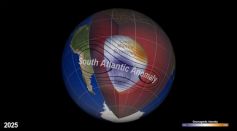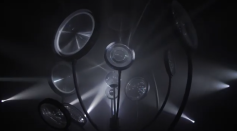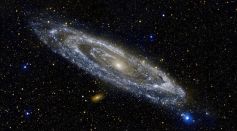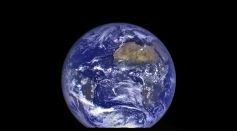SPACE

Astronauts Train to Explore Lava Tubes on the Moon and Mars
Equinox: The Light and Darkness Phenomenon That Happens Twice a Year

Citizen Scientists Help Discover 95 New Brown Dwarfs

Upcoming SpaceX Starlink Satellite Launch to Set New Milestones

There's a Dent in Earth's Magnetic Field, What Could This Mean for Satellites?
NASA's THEMIS Mission Provides First Strong Evidence Explaining Mysteries of Auroras

This New Space Salsa Is Out of This World
NASA Moves Forward With Its Orion Adapter Installation
Hubble Team Unveils Why Betelgeuse Unexpectedly Started Dimming

Dark Distortions: Art Installation Demonstrates How Dark Matter Interacts With Light

Arecibo Observatory Reports Damaged Reflector Dish & Cables

ALMA Finds a Galaxy Like Our Own in the Early Universe
Spacepower is a New Military Might, According to the US Space Force Doctrine

After 50 Years, Earth Receives Laser Signals From the Moon
Most Popular

Soil Degradation Crisis: Why Global Food Security Depends on Land Sustainability

How Trees Talk to Each Other: The Science Behind the Forest Network Underground

Top 10 of the World's Most Dangerous Invasive Species and the Devastating Impact on Ecosystems

Old Growth Forests: The Irreplaceable Heart of Forest Conservation and Biodiversity




